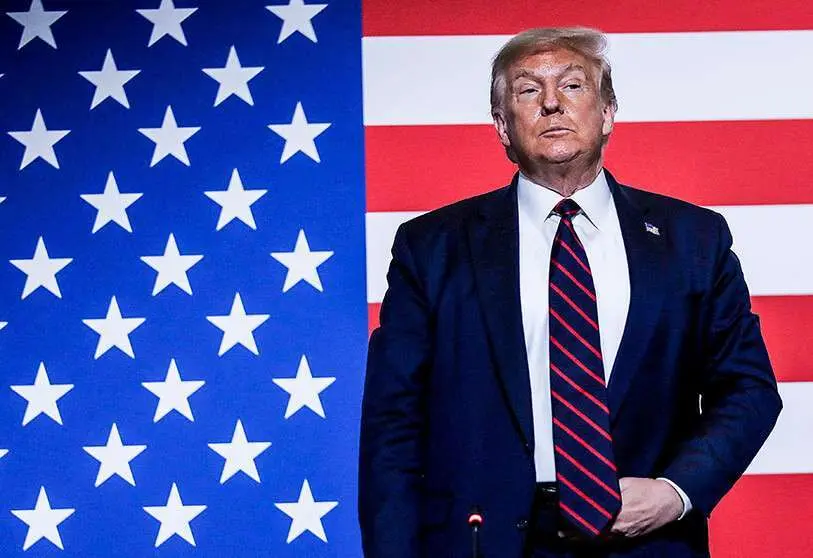Donald Trump, the decline of an anomalous character

Although the polarization in the United States had long been very evident and the risk of confrontation very high, the events that occurred in the first week of 2021 have surprised us all: legislators, American citizens and citizens from all over the world, analysts and allies and enemies alike. The images and the investigations that are still taking place about the patriots' march to Washington - to protest against the approval of the official results of an election that they consider stolen - and the subsequent assault on the Capitol last January 6 continue to generate deep ideological debates and, above all, numerous doubts and unknowns about the security of the world's first democracy. On the other hand, the geopolitical implications of the security gap that free access to the seat of national sovereignty by a diverse crowd brings to its opponents is, in turn, an added risk factor, in that it opens a window of opportunity that will not be missed by actors with an interest in destabilizing the interests of the world's first power, distracted by the transfer of powers to the new Democratic Administration, headed by Joe Biden, and in preventing a repetition of the clashes and riots that have been taking place for months across the country on January 20, the date scheduled for the official inauguration and swearing-in.
Beyond the nonsense of some folkloric images showing a group of subjects, dressed in surrealistic costumes, walking through the halls of the Congress as if it were a guided tour of a museum, taking souvenir photographs, posting stories on social networks or even taking objects - like a lectern -, and the subsequent moments of tension and violence that left five dead and several wounded, the questions we should ask ourselves are whether there really was a breach of security and whether the intention of the protesters was only to draw attention to or subvert the constitutional order, or in other words, to provoke a coup d'état. Caution is necessary, bearing in mind that the events, however grotesque and unacceptable they may seem to us, are not so simple to explain, at least not with the certainty with which each of the extremes is pronounced: Neither the outgoing president, Donald Trump, is a dangerous psychopath who has lost his mind and threatens to put the world on the verge of a nuclear crisis, nor the identities and stories of those arrested who have transcended suggest that the assault was the product of a false flag operation that had the complicity of the most corrupt elements of the deep state. Against the backdrop of an atypical and highly questioned legislature since its beginnings in 2016, marked by an impeachment process in 2019 and the subsequent suspicion of electoral fraud last November, which the State's lawyers have not been able to prove despite some evidence that seems solid, the answer to these questions, in one way or another, will determine the responsibility in the events of Donald Trump and will seal the future of reconciliation or the abyss between the two sensibilities that confront American society. Analyzing the causes that have led to the degradation of the institutions of the world's first democracy and the level of polarization of its population is more complex than the simplicity with which the majority of the mainstream has rushed to label as fascists, geeks, riffraff or illiterate the more than 70 million citizens who chose in 2016 to elect an outsider in politics because they did not feel represented by the traditional ruling elite.
Similarly, the speed with which the House of Representatives has rushed to close the case by initiating a second impeachment process against outgoing President Trump within days of leaving office, and censorship in the media and social networks, with the blocking of accounts and messages from Trump himself and his followers, leaves little doubt that the intention is to bring political balance back to the traditional status quo and to curtail the possibility that the Republican Party, with its leadership cut off, will be a viable option in the 2024 election. Moreover, the Republican Party's influence in the Senate will depend on the ability of its leader, Mitch McConnell - who always saw Trump as a passing phenomenon - to bring together the two sensibilities now at odds. Despite his weakness, Trump still has sufficient support, which will be more or less consistent depending on his political and judicial destiny - he is accused of rebellion and incitement against the U.S. government - after his departure from the White House.
These riots have completely changed the scant favorable perception from the outside, even among the Republican ranks, of President Donald Trump. For his detractors, what happened is the confirmation of his lack of commitment to the values of democracy and freedom; for his supporters, sadly disappointed, a red line that invalidates great achievements in the economic, social and diplomatic fields. This anomalous and uncomfortable character, who did not fit with the discipline of Washington and conventional diplomacy, represents the clearest example of how to lose one's reputation in an instant. The media story has won. Isolated and wounded after leading an insurrection whose effects he probably did not gauge and could not control, the man who has held the fate of the world in his hands and who has taken the pulse of the most ferocious globalism, lives his decline in a besieged Washington, as the metaphor of his own political and personal life.
Marta González Isidoro, journalist and political analyst
